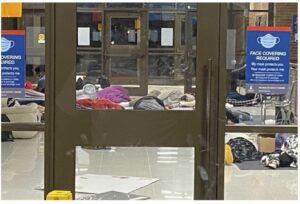Lesson 43 –
Psalm 126 NRSV
1 When the Lord restored the fortunes of Zion,
we were like those who dream.
2 Then our mouth was filled with laughter,
and our tongue with shouts of joy;
then it was said among the nations,
“The Lord has done great things for them.”
3 The Lord has done great things for us,
and we rejoiced.
4 Restore our fortunes, O Lord,
like the watercourses in the Negeb.
5 May those who sow in tears
reap with shouts of joy.
6 Those who go out weeping,
bearing the seed for sowing,
shall come home with shouts of joy,
carrying their sheaves.
BACKGROUND
This is a short psalm. In just six verses, the psalmist paints a beautiful picture of restoration. Both Psalm 125 and Psalm 127 are also quite short. Psalms are communal texts. They’re rarely just about one individual. Rather, they reflect (and speak to) the histories of communities. In your own devotional period, read Psalms 125-127. What message is God reflecting to you in these passages? Are there ideas you would edit for today’s times? How would you adapt and apply them to your own life?
Today’s lesson will focus on creative visioning. Read the scripture out loud together. What’s happening during this passage?
The first half reflects on the goodness of God in the past. The psalmist tells the people that it was like a dream when “the Lord restored the fortunes of Zion.” The people were full of laughter and sang joyfully. Word got out internationally and people would say, “the Lord has done great things for them.”
The second half asks God to maintain that fortune. The psalmist appeals to God that God would “restore our fortunes.” The writer continues with an affirmation and a prayer that “those who sow in tears reap with shouts of joy.”
WHAT KIND OF MEMORY DOES THE PSALMIST HAVE?
In this Psalm, the psalmist acts as a historian. It is their job to retell the story of how God has brought them through “a mighty long way.” Doing so helps the people remember what is possible. It is also the psalmist’s job to publicly ask God for a repeat blessing. This psalm would have been very different if the second half said, “thanks for all you’ve done, you don’t have to do anything else for me, I’m okay.”
Instead, the psalmist asks God to keep blessing people. There are still people who are weeping, so let us pray that this weeping is transformed into joy. The psalmist has to have a strong memory, but also, a vivid imagination for the future. They have to believe that God can continue to bless the people over and over. In the psalmist’s own words, they are “like those who dream.”
WHAT KIND OF NEWS SHOULD WE SPREAD?
Verse 2 is about how the rest of the world responded to the people’s blessings.
It was said among the nations, “the Lord has done great things for them.”
Good news travels fast. But have you ever been happy about something, and you encounter people who want to rain on your parade? If you get a new job, someone will wonder why you left the old one. If you ended an unhealthy relationship, someone would wonder “what really happened?” If you’ve committed to healthier habits and you’re a happier person because you’re well-rested, someone will say, “I bet you think you’re hot stuff, huh!”
People will always have something to say when you are doing well. Sometimes their congratulatory wishes are not always earnest. But as the saying goes, “if my neighbor gets a blessing, I know it’s in my neighborhood.” We can be happy for the good things that happen in our communities. We should also encourage people, not just when they have big news, but every day. Challenge yourself to encourage someone… without expecting anything in return! It’s free and it can make someone’s day!
What questions do you still have of this scripture? How will you commit to journeying with this text this week?
 Connection to Today’s World
Connection to Today’s World
Students at Howard University are protesting their administration because their living conditions are unlivable. There’s mold, vermin infestations, and inconsistent heating and cooling. In addition to these conditions in their living spaces, there have been tuition hikes and dangerous COVID-19 non-compliance. They have three main demands in this wave of resistance called #BlackburnTakeover:
1. In-person town hall with President Frederick and the administration scheduled before the end of October
2. Reinstate all affiliate trustee positions (students, faculty, and alumni) on the board of trustees with voting power
3. The president and chairman of the board propose a meeting with student leadership outlining their “housing plan” to protect the incoming classes of Howard’s immediate future
Of course, students have been protesting at Howard. This is not the first time that they have had to call the administration into account. A student testified that “we’re paying $48,000 to $50, o00 a year to be living with mold and being hospitalized. With rats and roaches. That’s not Howard.”
The Howard University Student Association Senate released a statement: “We go to class every day and learn about Black pioneers who protested to create progress. No student should be expelled for holding our beloved university accountable.”
Those who are protesting are in a very long tradition of resistance and advocacy. Howard Alums have been writing, posting, and tweeting about how their time at Howard taught them to use their voices. Public figures who are Howard grads have expressed solidarity with students and disappointment in the administration for allowing the conditions to spiral. Especially since there has been so much attention and praise for Howard since VP Kamala Harris (an alum) was elected and due to the newly renamed “Chadwick Boseman College of Fine Arts,” students are feeling an eerie dissonance between what the school says it is and how they are experiencing it.
It’s important for the students to name their issues. Graduates and supporters of students are praying (and lending their power) to the hopeful aim of a better moment.
May those who sow in tears reap with shouts of joy.
Journal: Is there something that has happened in your life that you’d like to happen again? What is God’s role in that? What is your role in that?
Closing: Listen to “All In His Hands” sung by the Howard Gospel Choir.
All in His hands,
I put it all in His hands (2x)
Whatever my burden, problem,
If I have a question
I put it all, yes, I put it all,
I put it all in His hands
Whatever the problem,
I put it all in His hands
I know that He can solve them,
I put it all in His hands
This and that,
I put it all in His hands
I know that for a fact,
I put it all in His hands
No matter how great or small,
He’s the master of them all
I put it all, yes, I put it all,
I put it all in His hand.
PRAYER:
Dear God,
You have given us minds, hearts, and imaginations. You want us to envision a better world for us all. You want us to go from mourning into dancing. And you’ll move heaven and earth for us to get there. May we become like those who dream. May our mouths be filled with laughter, our tongues with shouts of joy, our hearts with sustaining love, our bellies with nourishing food, our homes with positive and loving energy. In Jesus’ name we pray, Amen.
WORKS CITED
https://www.wusa9.com/article/news/local/howard-university-sit-in-housing-demands-representation/65-2a58cdd0-cb3e-4ba0-8a10-3be985f6038e
https://www.teenvogue.com/story/howard-university-blackburn-protest





